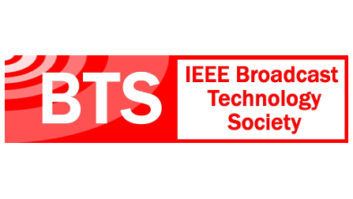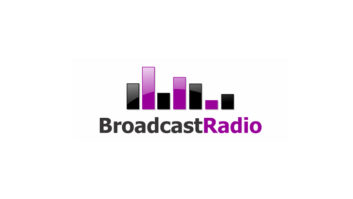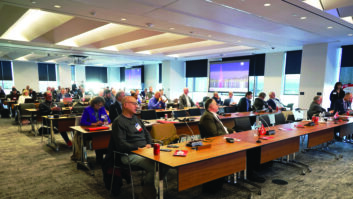Broadcast auxiliary purge
Jul 1, 2002 12:00 PM, By Harry Martin
In May the FCC announced that it is purging its files of 9,000 or more unidentified broadcast auxiliary licenses, including microwave STL facilities, remote pick-ups and inter-city relay stations. The FCC cannot match these 9,000 licenses with the main stations that operate them.
Most of the problem has been created by haphazard record keeping by the FCC. When main stations were sold, auxiliaries often remained in the names of the selling entities, many of which ceased corporate existence. Also, the call signs of main stations have changed, often several times, with no record being maintained of the auxiliaries that were affected. Then, when the FCC entered its auxiliary station database into the Universal Licensing System (ULS), all of the incorrect license data were entered into the system with no regard for the accuracy of main station call signs or licensee names. As a result, thousands of auxiliary licenses, although still in use, are not associated with main stations in the FCC’s data systems. The Commission’s solution is to rid its records of all licenses not claimed by July 1. Licensees must act quickly, or these licenses will be cancelled.
The best way to make sure your auxiliary licenses are not caught in the purge is by following the instructions in the FCC’s May 10, 2002, Pubic Notice, DA 02-1094, which can be accessed at www.fcc.gov on the Wireless Bureau’s Web page under �Headline Archive.�
Pirates may walk plank
A federal court has agreed to again hear arguments about the constitutionality of the FCC rule forbidding pirate broadcasters from applying for LPFM radio licenses.
In February, a three-judge panel of the U.S. Court of Appeals for the District of Columbia invalidated the provision of the Radio Broadcasting Preservation Act of 2000 that prohibits anyone who has engaged in unlicensed radio broadcasting from applying for a low-power FM radio license. The Court deemed this character qualification provision unconstitutional under the First Amendment and the equal protection clause of the Fifth Amendment, because it targeted only unlicensed broadcasters but not other types of rule breakers � and because it failed to consider waivers for pirates who pled ignorance of the rules or renounced their pirate ways and tried to bring their operations into compliance with FCC rules.
The FCC persuaded the Court to rehear the February ruling en banc (by all eight judges of the D.C. Circuit Court of Appeals) by arguing that the decision �blesses a wholly unwarranted judicial intrusion into Congress’s domain.� According to the Commission, the Court improperly overstepped the boundary between itself and Congress by finding that additional persons should have been covered or excluded under the provision, which was promulgated as an amendment to the FCC’s LPFM rules.
The order granting review en banc vacated the three-judge February judgment, which in effect breathes life back into the prohibition against pirates owning LPFM stations. That does not mean pirates-turned-LPFM-applicants are likely to get an opportunity to file LPFM applications before the case is reheard; the FCC has not scheduled a new LPFM filing window. Nor is this judicial activity likely to slow down the LPFM service. On May 23, 2002, the Commission issued a cut-off list of nearly 200 LPFM applications that are ready for processing. In a footnote to the cut-off list, the FCC noted that its determination that the listed applications are all �acceptable� is not �the result of the staff taking adverse action with respect to a conflicting LPFM application that failed to satisfy the Commission rules regarding [pirates]� � in other words, the Commission seems to be confident that the cut-off list does not include any pirates or potential pirates.
Streamers’ hopes dashed
A June 20 ruling by the Librarian of Congress, which has ultimate authority for administering U.S. copyright laws, dashed the hopes of Internet radio stations by requiring webcasters to pay substantial royalty fees to record companies. The new rates for Internet-only webcasts were reduced from the previously approved 0.14 cents per song per listener to 0.07 cents. The rate for broadcasters streaming their signals on the Internet will remain at 0.07 cents.
Martin is an attorney with Fletcher, Heald & Hildreth, PLC., Arlington, VA. E-mail[email protected].
Dateline:
Renewal applications will be due for all stations in Washington D.C., Maryland, Virginia and West Virginia in June 1, 2003. For stations in these locations, pre-filing public notices will have to be broadcast beginning March 1, 2003. This will begin the next renewal cycle, which will extend through 2006.












